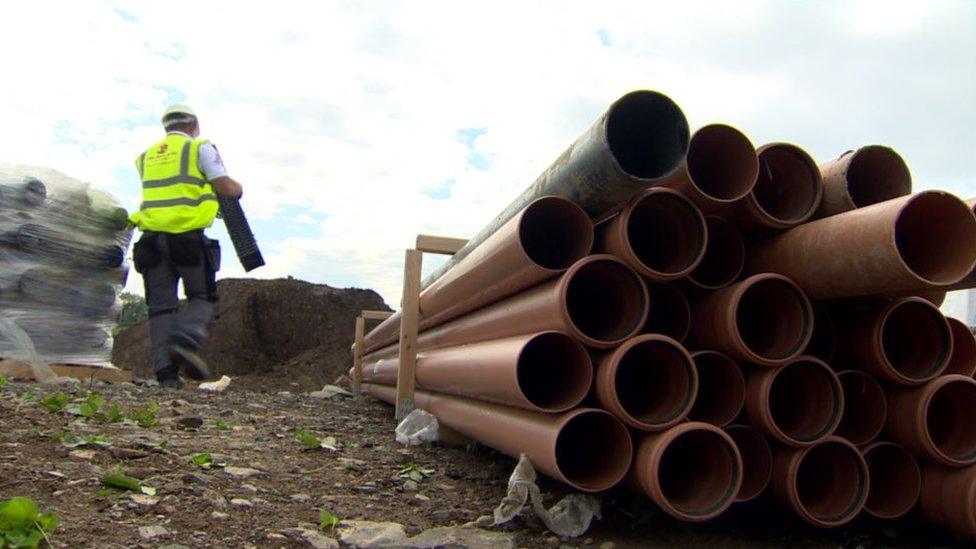Public sector contracts affected by rising building material costs
- Published
- comments

Building supply costs have surged globally
Northern Ireland construction companies facing big rises in the cost of building materials could be allowed to increase the prices of previously agreed public sector contracts.
Building firms are dealing with surging global prices for products like timber.
The Stormont Executive has agreed guidance for government departments dealing with contractors.
It includes the possibility of agreeing cost increases or later completion dates.
Finance Minister Conor Murphy said the impact of the pandemic on supply chains has "had a huge impact on the availability of construction materials with global demand, product shortages and delivery delays leading to market volatility and increased prices".

Conor Murphy says firms will have to be "fully transparent"
"Government contractors are experiencing escalating costs and delays in getting materials which they could not have foreseen when they tendered for government work."
The executive has agreed a "procurement advisory note".
It says that where a contractor can "provide compelling evidence on an open book basis" that it has experienced a significant delay in the supply of a product that impacts on a completion date then the department and contractor should work together "in a spirit of mutual trust and cooperation" to identify alternative materials or agree a change to the completion date.
On prices, it says it is reasonable to expect contractors to absorb price fluctuations "within moderate tolerances".
However it acknowledges that in the current environment contractors may be able to show they are facing cost increases that are higher than that "which a diligent contractor could reasonably have anticipated".
In that situation the department should consider adjusting the price of the job.
The note emphasises that firms will have to provide "full transparency" on how they originally priced a job and how material costs have changed.
'Vital lifeline'
Mr Murphy said: "I am pleased the executive has agreed my proposals to make provision to manage delays in supplies and to include mechanisms in existing and new contracts to make allowances for inflationary prices."
The move has been welcomed by the construction industry which has been warning that some firms were facing difficulties in completing contracts at previously agreed prices.
Mark Spence, managing director of the Construction Employers Federation, said: "We welcome this vital lifeline for local contractors who for many months have been shouldering the escalating burden of unforeseen global price increases and material shortages whilst ensuring public works continue to be delivered."
The measures will be reviewed at the end of September.
Related topics
- Published3 June 2021
